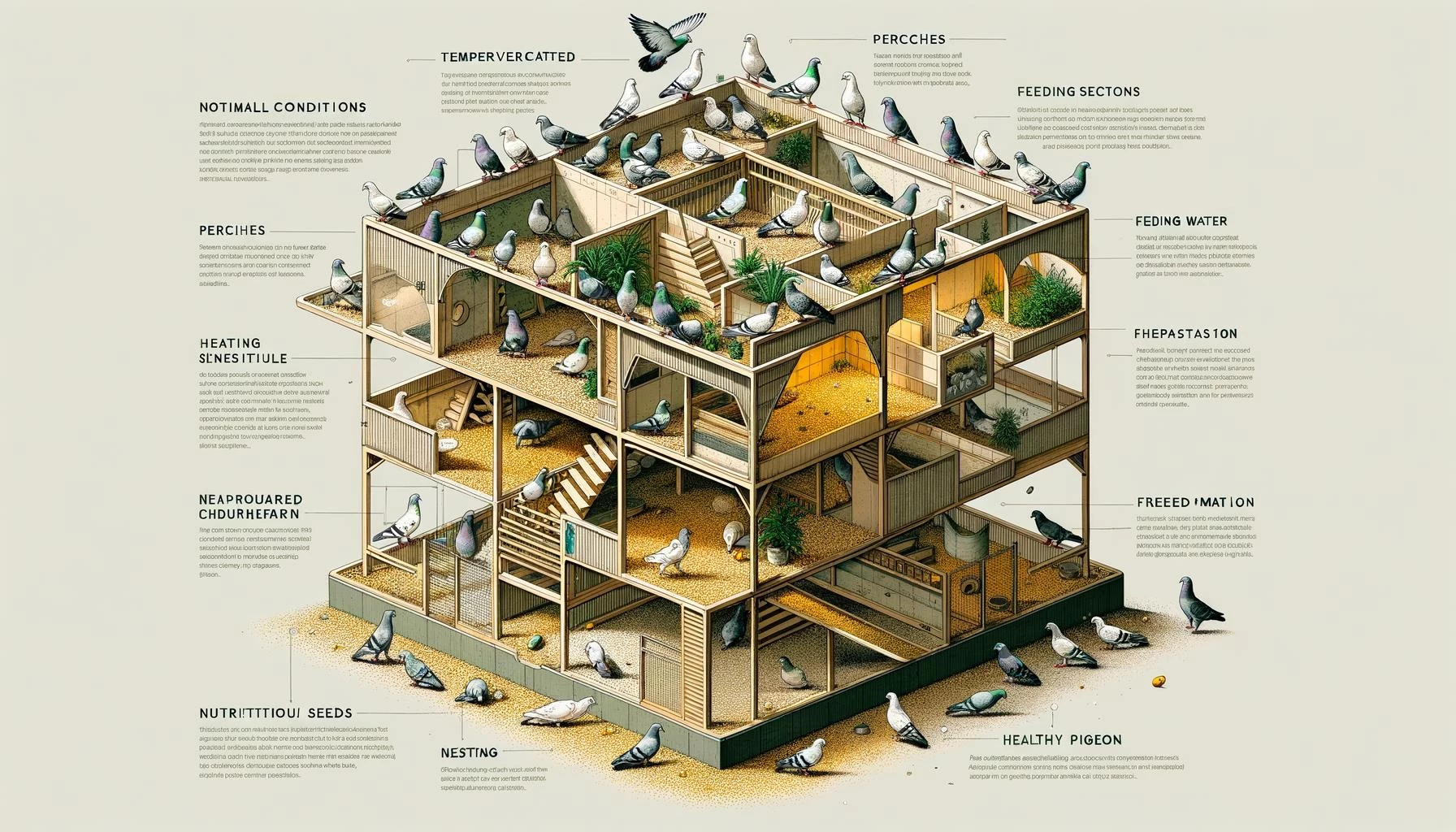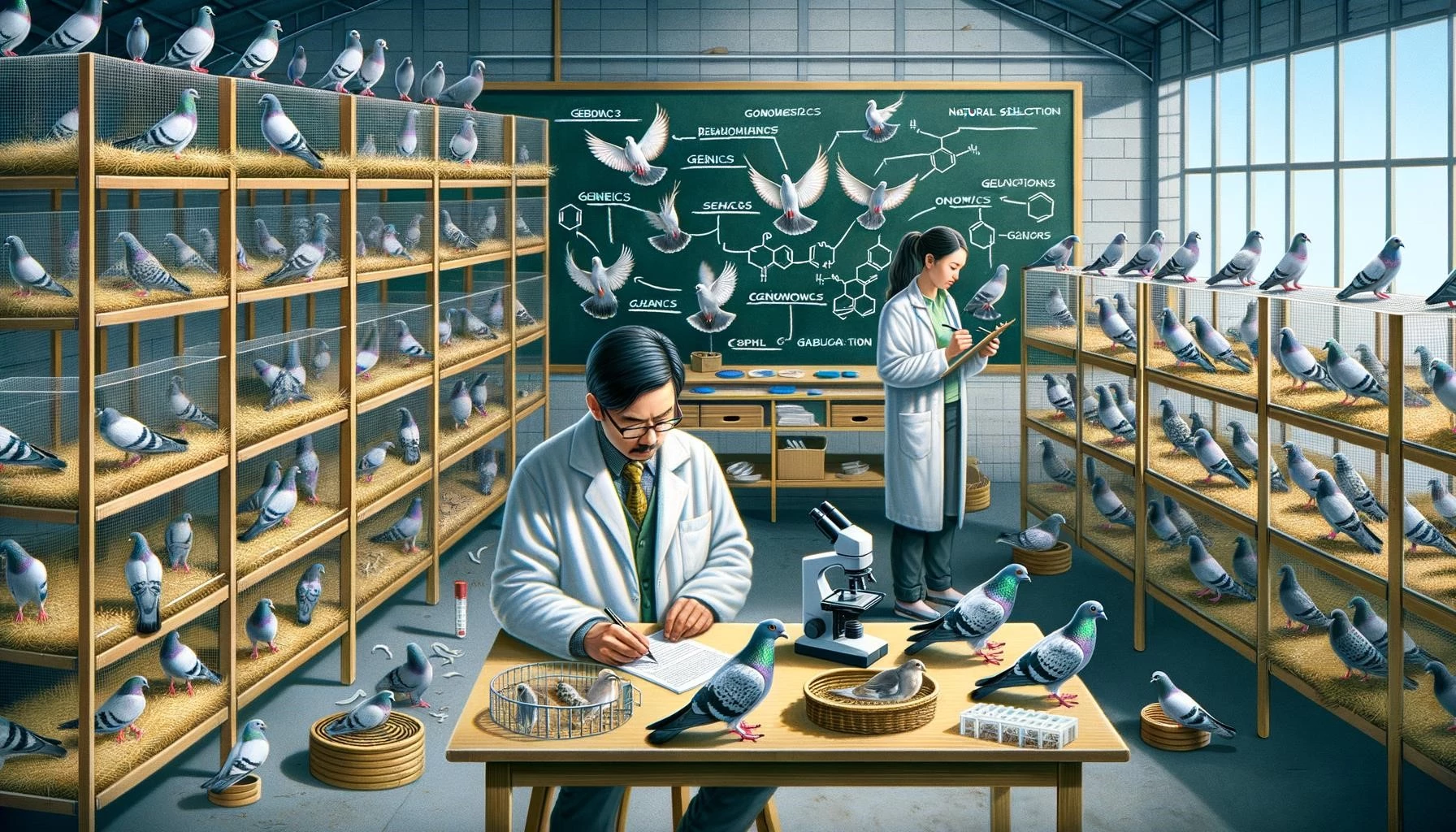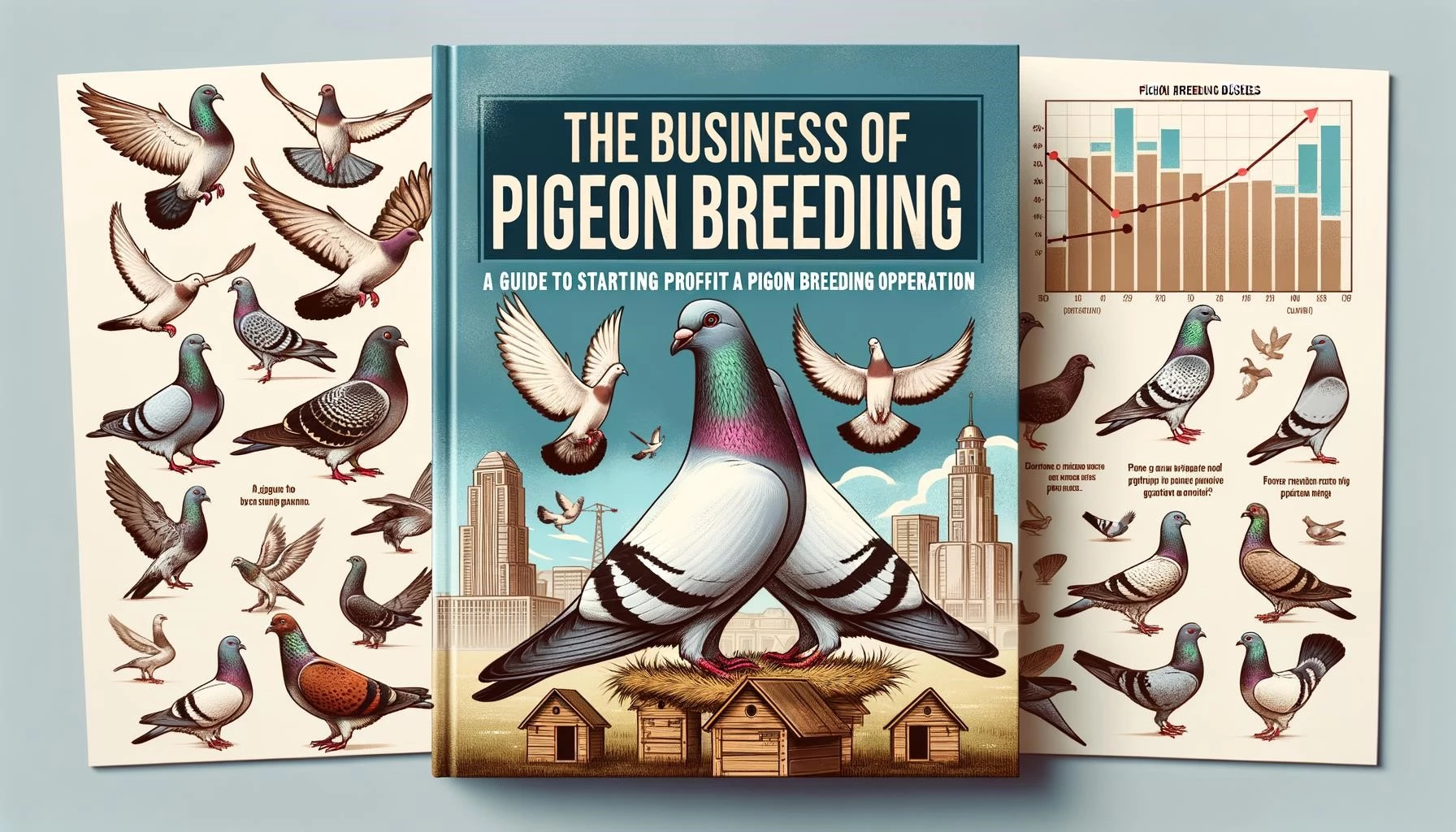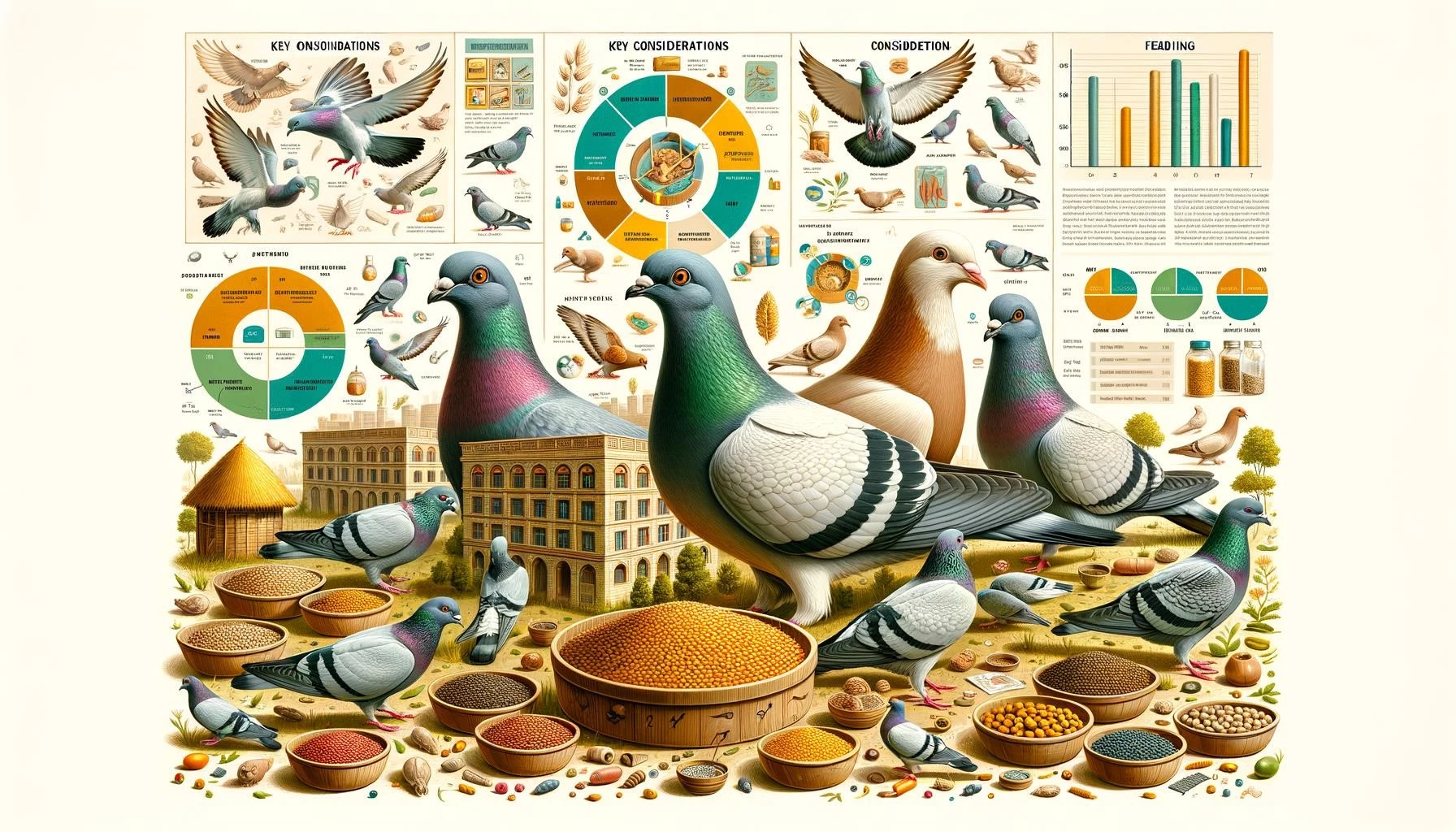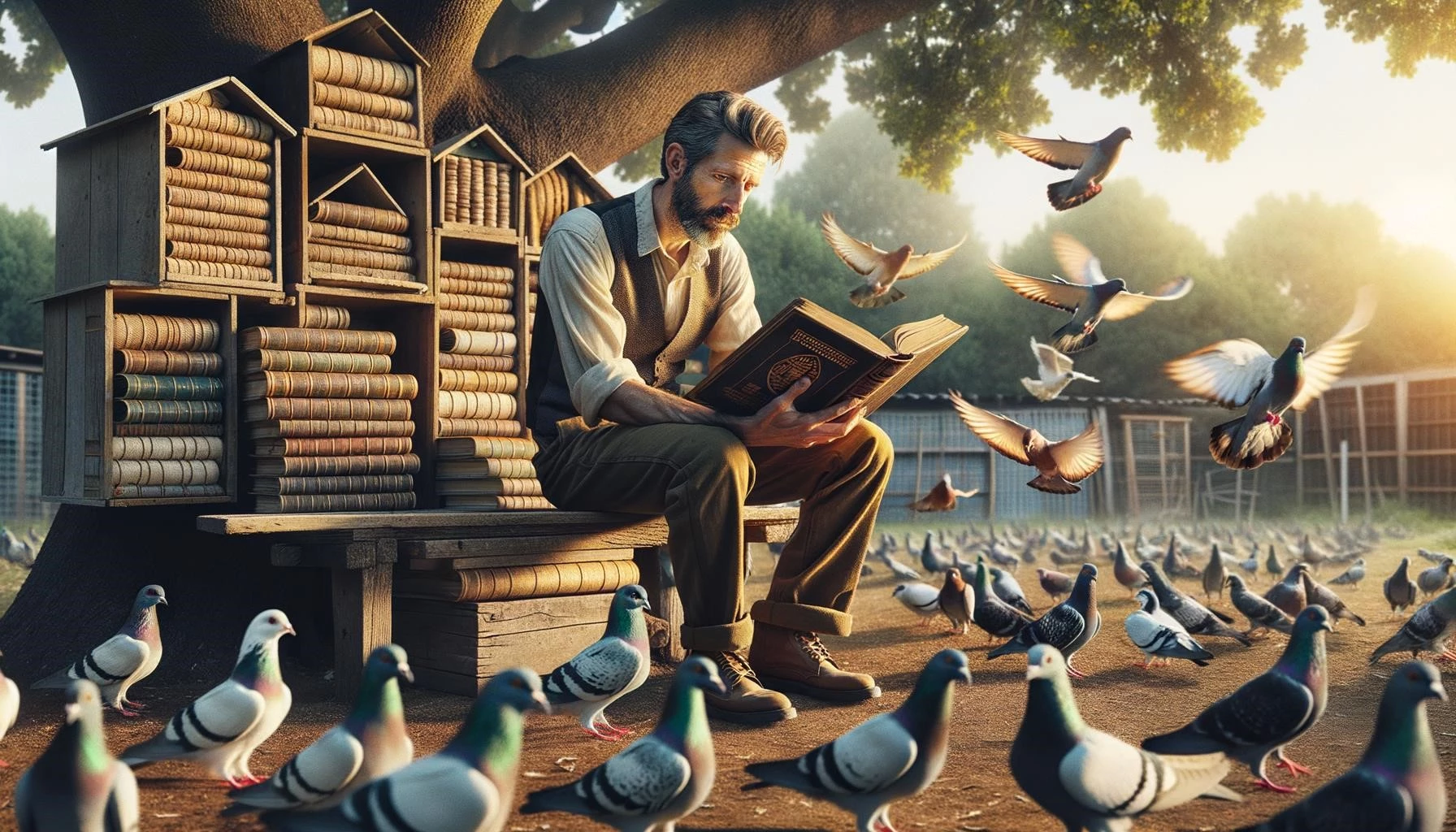Exploring the world of pigeon breeding reveals a fascinating union of art and science, with a touch of passion and cultural preservation. This practice, far from simple, involves meticulous selection of parent pigeons, creation of comfortable habitats, and careful nurturing of chicks. Beyond hobbyist interests, pigeon breeding plays an instrumental role in advancing scientific research, conserving endangered breeds, and even presents economic opportunities. Let’s embark on a journey into the captivating realm of pigeon breeding, where every wing flutter tells a story of evolution and every coo echoes the rich tapestry of avian heritage.
Key Takeaways
- Pigeon breeding is the purposeful mating and reproduction of pigeons to produce offspring with specific desired traits.
- Pigeon breeding serves various purposes, including improving specific traits, maintaining breed standards, participating in shows or competitions, or creating pigeon racing teams.
- The process of pigeon breeding involves selecting suitable parent pigeons, creating a comfortable living space, pairing pigeons based on compatibility, incubating eggs, and raising the chicks with proper care and nutrition.
- Pigeon breeding contributes to scientific research, conservation efforts, and the enjoyment of these wonderful birds.
- Pigeon breeding is a multifaceted pursuit that combines art, science, culture, and passion.
Pigeon breeding serves various purposes, offering a wide range of benefits to enthusiasts and society as a whole. Breeding aims to improve specific traits, maintain breed standards, participate in shows or competitions, or create pigeon racing teams. Additionally, pigeon breeding contributes to scientific research, conservation efforts, and the enjoyment of these wonderful birds.
Breeding pigeons allows breeders to selectively mate pigeons with desired traits, ultimately producing offspring that exhibit those traits more consistently. This process allows breeders to enhance certain characteristics, such as color, feather type, size, or behavior. Through careful selection and breeding, breeders can develop specific varieties or breeds of pigeons that meet certain standards or display unique attributes.
In addition to the aesthetic and practical aspects of pigeon breeding, it also has scientific value. Pigeon breeding provides insights into genetics, inheritance patterns, and evolutionary processes. Researchers can study the genetic makeup of different breeds and understand how specific traits are inherited. This knowledge can be applied to various fields, including evolutionary biology, genetics, and animal breeding research.
Pigeon breeding also plays a role in conservation efforts. Some breeds of pigeons are considered endangered or rare, and breeding programs help preserve their genetic diversity and prevent their extinction. Breeders can work with organizations or institutions dedicated to pigeon conservation to ensure the survival of these unique and valuable breeds.
The Process of Pigeon Breeding
Pigeon breeding involves several stages and techniques to achieve successful reproduction and the desired outcomes. Here is an overview of the key steps involved in the process:
Breed Selection
The first step in pigeon breeding is choosing the breed that aligns with your goals, preferences, and available resources. Consider factors such as size, color, feather type, and behavior when making your choice. Different breeds have distinct characteristics, and selecting the right breed is crucial in achieving your desired outcomes.
Creating a Suitable Living Space
Creating a suitable and comfortable living space, known as a loft, is essential for the well-being and breeding success of your pigeons. The loft should provide adequate shelter, ventilation, and security. It should also have separate nesting areas for pairs of pigeons and sufficient space for free movement.
Selecting Breeding Stock
Acquire healthy and genetically sound pigeons, known as breeding stock, from reputable breeders or reliable sources. Choose pigeons that complement each other in terms of traits and genetics. It is important to select pigeons that possess the desired traits you wish to breed for and consider their genetic background to avoid potential health issues or breeding complications.
Paring Pigeons
Pair pigeons based on their compatibility and desired breeding outcomes. Aim for pairs that balance each other in terms of traits, ensuring a well-rounded and genetically diverse offspring. The pairing process should consider the breeder’s knowledge of each pigeon’s individual characteristics, pedigree, and genetic history. Successful pigeon pairings will enhance desired traits and minimize negative traits and genetic disorders.
Egg-Laying and Incubation
Once pairs are established, the pigeons will proceed to lay eggs. The female pigeon will lay one or two eggs, generally within a specific nesting area of the loft. Ensure proper incubation conditions for the eggs, maintaining optimal temperature and humidity levels. Eggs typically hatch within 17-19 days. During incubation, the parent pigeons take turns incubating the eggs by sitting on them to keep them warm.
Raising Chicks
Once the eggs hatch, the chicks enter the raising stage. This stage is marked by the parent pigeons’ care, as they provide warmth, food, and protection to the young fledglings. Provide a well-balanced diet that includes pigeon feed, grains, seeds, greens, and essential nutrients. Adjust the diet based on the chicks’ age, health, and breeding stage. The chicks will gradually grow and develop their feathers before reaching adulthood.
Maintaining Healthy Conditions
To ensure successful breeding, maintaining a clean and hygienic loft is essential. Regularly remove waste, change bedding, and disinfect to prevent diseases and ensure a healthy living environment. Implement preventive measures such as vaccines, regular health check-ups, and a hygienic environment to minimize the risk of diseases. Seek immediate veterinary care if a pigeon shows signs of illness.
The Benefits of Pigeon Breeding
Pigeon breeding extends beyond a hobby; it offers a multitude of benefits that enrich the lives of breeders and contribute to society:
Personal Fulfillment
Pigeon breeding can be a deeply rewarding and fulfilling endeavor. It allows breeders to witness the birth and growth of new life, the development of unique characteristics, and the creation of beautiful, healthy pigeons. The process of breeding and nurturing these birds can bring a sense of purpose and joy to breeders.
Scientific Advancements
Pigeon breeding contributes to scientific research and advancements in various fields. Studies of pigeon genetics and inheritance patterns can provide insights into broader evolutionary and genetic principles. Knowledge gained from pigeon breeding can have applications in the understanding of genetics, inheritance, and evolutionary biology.
Cultural Preservation
Pigeon breeding plays a role in the preservation of culture and heritage. Many pigeon breeds have historic and cultural significance, representing different regions or traditional practices. By breeding and maintaining these unique breeds, breeders contribute to the preservation of cultural traditions and the diversity of avian life.
Economic Opportunities
Pigeon breeding can also present economic opportunities for breeders. Certain breeds of pigeons, especially those with desirable traits, can be valuable in the market. Breeders can sell pigeons, breeding pairs, or offspring to interested collectors, enthusiasts, or other breeders, creating a potential source of income.
Ultimately, pigeon breeding offers a holistic and multifaceted experience that combines art, science, and passion. It allows breeders to immerse themselves in the wonders of nature, contribute to scientific knowledge and conservation efforts, and experience the joy of nurturing and raising these magnificent birds.


